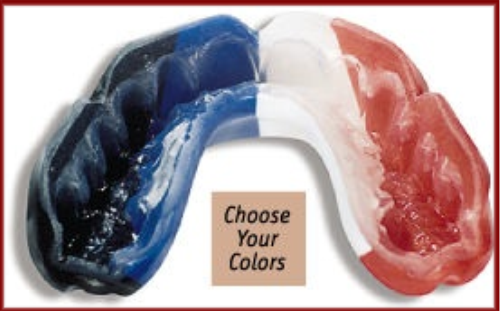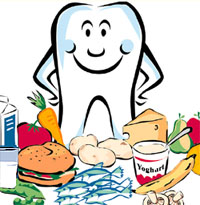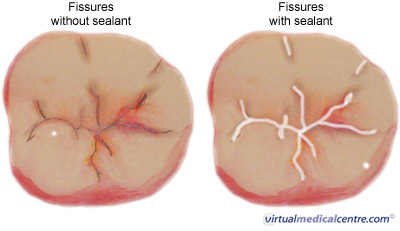Children & Preventative Dentistry
Monitoring the health of your children’s teeth in the early stages of their life is imperative to prevent, detect and treat problems that may occur as your child matures. Our friendly team can also help you and your family to become confident in implementing a preventive program at home.
Preventative Dentistry
No-one like having to undergo expensive, lengthy treatment for dental problems. That’s why at Mascot dental centre, we are firm believers in preventative dentistry which detecting problems early, to reduce the risk of major dental interventions and save you money by attending to minor problems before they become major ones.
To ensure healthy teeth and gums, make sure you:
- Attend regular dental examinations and professional cleanings at our practice.
- Follow a top notch oral hygiene routine at home that includes brushing and flossing.
- Eat a well-balanced diet and limit your intake of sugary and acidic foods and drink.
These simple pointers can help you and your family achieve the best oral health possible.
Brushing and Flossing
At home your oral hygiene routine should involve brushing and flossing and both are equally as important. That’s because brushing eliminates plaque from the surfaces of the teeth, while flossing removes plaque form in between the teeth and under the gum line.

Top tips for best brushing
- Brush your teeth at least twice a day, morning and night
- Use a soft toothbrush and replace it every 3-4 months
- Brush firmly at 45 degree angle where the teeth meet the gums, gently rocking the brush back and forth using small circular movements
- Don’t scrub too vigorously, as this can scratch the tooth enamel and cause the gums to pull away from the teeth
- Brush all surfaces of the teeth, tongue-side and cheek-side, and brush chewing surfaces vigorously with short back-and-forth strokes
- Brush tongue to remove plaque, which causes bad breath

Flossing facts to help hygiene
- Floss every night with a piece of floss about 50cm long or use a handle flosser like Johnson & Johnson daily flosser.
- Gentle work the floss between the teeth toward the triangle of gum and move the floss up and down several times to scrape off the plaque.
- Popping the floss in and out between the teeth will not remove much plaque, and can damage your gums.
- Bleeding gums should stop after 1-2 weeks of regularly daily flossing – If this does not occur please speak the dentist.
On completion of your appointment a fluoride mouth rinse will be administered to strengthen your tooth enamel and leave you with a fresh, crisp and vibrant breath and sparkling, shiny teeth.
The dental hygienist will recommend a personalised home care program and your next active maintenance appointment.
Mouthguards
To avoid painful, disfiguring and expensive dental injuries, we recommend a precision made mouthguards from mascot dental centre.
Dental injuries are the most common type of oral facial injuries sustained in sports. So if you or your family, particularly your children, are involved in a contact sport a custom-made mouthguard (not a chemist bought boil & bite mouthguard) is an essential piece of protective equipment.
An off the shelf mouthguard from a sports store or pharmacy will not provide enough protection to a facial trauma. With a custom made mouthguard you have the very best of protection, as it’s specifically shaped from a detailed mould of your mouth, to fit your bite pattern, mouth and gum contour. You’ll also find you can breathe more easily and speak more clearly with a tailored mouthguard – so your on-field performance may well improve too!

Dental injuries can be painful, disfiguring and expensive to treat. They may result in time off work or school to recover, lengthy and expensive dental treatment. A custom fitted mouth guard from your Mascot Dental dentist offers far more protection and comfort than an off-the-shelf model. Worn every time you play or train, a mouth guard helps protect against dental injuries, the most common type of oral facial injury sustained in sports.
Oral Hygiene Instruction
We know you’ll agree that prevention is better than cure. Regular checkups and preventative care, especially for children can reduce the risk of major dental interventions, as well as saving you money by attending to minor problems before they become major ones.
To ensure healthy teeth and gums, all you need to do is follow a few simple rules:
- Attend regular recall appointments for examinations and professional cleanings.
- Follow an efficient cleaning routine, including brushing and flossing at home.
- Eat a well-balanced diet and limit your intake of sugary and acidic foods.
Gum and Periodontal diseases
If you’ve ever experienced red, swollen gums that bleed easily when you brush and floss, you may be on the path to gum disease. Gum disease is the most common cause of tooth loss, and has also been linked to other health problems such as heart disease, stroke and diabetes. Fortunately, an effective oral hygiene routine will prevent the progression of gum disease and improve your overall oral health. The dentist can advise you on the best treatment plan for gum disease.

Smoking
Most of us are aware that smoking is hazardous to our health, but many people do not know that smoking can adversely affect the teeth and gums. Smoking significantly affects your teeth and gums, such as discolouration of the teeth, gum inflammation, infection, chronic bad breath, teeth loss and even cancer of the mouth.
The best advice we can give our patients is to quit smoking. Without this, any kind of treatment for your dental problems will be difficult and maintaining oral health will be virtually impossible. For this reason we will endeavour to help you quit smoking and start enjoying the fresh feeling of clean teeth and a healthy mouth.
Diet and Fluoride Treatment
Your diet has a great impact on your teeth as it does on you overall health. For example foods high in fat and sugar not only contribute to your weight, they also react with the bacteria in your mouth to produce acid causing decay and tooth destruction.
An important fact to be aware of is that it’s not only the quantity of sugar and starch you eat, but the frequency. Continually snacking and drinking sugar food or drinks throughout the day will expose your teeth to acid attack for much longer periods causing greater rate of decay.
To reduce this acid attack on your teeth, you need to limit your between meal snacks and reduce your intake of sugary drinks. Chewing sugar-free gum after meals will also stimulate saliva production, your body’s natural acid neutraliser and rinsing with water after eating can also help limit the acid attack on your teeth.
Of course, we understand that everyone sometimes feels like a snack. So when you do choose protective foods such as cheese, nuts and of course fresh vegetables, instead of sugary treats.
Fluoride is a beneficial natural element for children’s developing teeth, and for maintaining the health of the adult teeth. Found naturally in most spring water, the atmosphere and many foods. When absorbed into the tooth enamel fluoride strengthens the structure and makes the tooth more resistant to fractures and decay.
Fluoride treatment can be applied to your teeth in gel, foam or varnish form. Each of which contains a much higher level of fluoride than the amount found in toothpastes and mouth rinses. In a process call remineralisation, the treatment can help repair damage caused by dental decay, to make sure your teeth stay strong and healthy.


Fissure Sealants
Fissure seals are acrylic coatings applied to teeth to prevent plaque from damaging the pits and fissures in your teeth. Pits and fissures on the chewing surface of baby and adult molars are normal imperfections, in which food and germs often become trapped. A cavity can easily occur because brushing and fluoride are not effective protection against cavities of the pits and fissures. Only sealants are effective protection against decay of these surfaces because they fill in these areas.
The sealant is a liquid that becomes hard like plastic after it is applied to the tooth. Sealant therapy is non-invasive, with no drilling and doesn’t require a local anaesthetic. Fissure sealants fill in these vulnerable areas, making the tooth smooth and easier to clean by creating a protective barrier against plaque and bacteria build-up.
Completely pain-free and non-invasive, fissure sealants require no anaesthetic, and take just five minutes per tooth to apply. Ideally, the sealant should be applied when the first permanent molars emerge at around age six and then again when the twelve year old molars erupt.
Child Dental Benefits Schedule
Important information for all Parents with Children aged between 2 & 17years
From the 1st January 2014, The Child Dental Benefits Schedule (CDBS) replaces the Medicare Teen Dental Plan and will provide dental care to children aged 2 to 17 who meet certain criteria.
Children aged 2-17 whose families who meet a means test will be eligible for benefits each year. The means test will be the same as the existing Medicare Teen Dental Plan (MTDP), which requires receipt of Family Tax Benefit Part A or other certain government payments.
The total benefit entitlement will be capped at $1,000 per child over a two calendar year period. Basic dental treatment, such as check-ups, x-rays, fillings and extractions are available using the CDBS. However services such as orthodontic and cosmetic treatments are not covered under the CDBS .
The CDBS aims to greatly improve the oral health of children. Our dentists at Mascot Dental are committed to providing you and your families with the best possible care.
The teams at Mascot Dental are pleased to assist you in understanding the CDBS. Please contact us for any assistance or for further information follow the link below.
Please see whether the Dental Benefits scheme is right for you.
http://www.health.gov.au/dental
http://www.humanservices.gov.au/customer/services/medicare/medicare-teen-dental-plan








